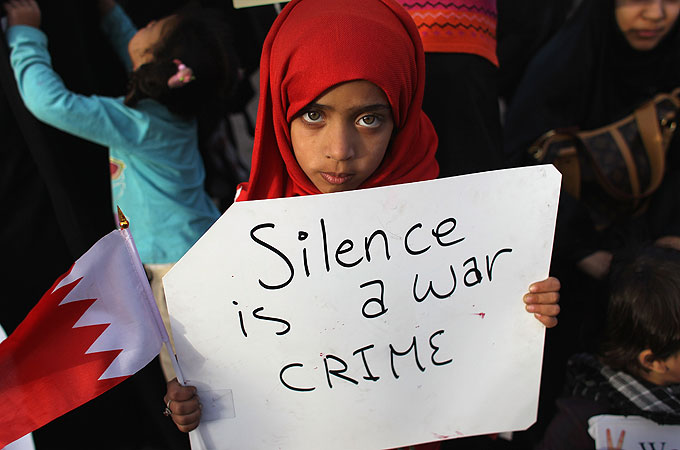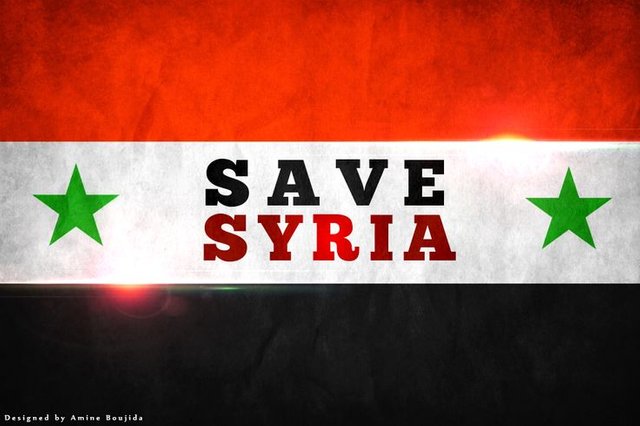
Of all the pictures coming out of Syria over the past two years, one has especially caught my attention. It is a picture of a young Syrian boy holding a sign that says, “Silence is a war crime. Save childhood in Syria.”
For too long, an indifferent world remained silent while it watched the war crimes committed by the Syrian regime of Bashar al-Assad. And while that silence has finally come to an end, the world must not ignore the role of another actor in this tragedy – Iran.
Sadly, the world has largely turned a blind eye to the destructive role Iran has played in assisting the brutal Assad regime in murdering more than 100,000 Syrian civilians. A handful of reporters and scholars, however, have done excellent research on the issue.
For example, a May 2013 joint report by the American Enterprise Institute, and the Institute for the Study of War found that: “The Iranian security and intelligence services are advising and assisting the Syrian military in order to preserve Bashar al-Assad’s hold on power. These efforts have evolved into an expeditionary training mission using Islamic Revolutionary Guards Corps (IRGC) Ground Forces, Quds Forces, intelligence services, and law enforcement forces.”
The report goes on to state that Iran “has provided support to Syria’s chemical weapons programs, including the deployment of Iranian scientists, the supply of equipment and precursor chemicals and technical training.” The report further discusses the extensive role played by Iran’s proxy, Hezbollah.
Hezbollah is the same group that the U.S. Treasury Department in 2012 found to have “provided training, advice and extensive logistical support to the Government of Syria’s increasingly ruthless efforts to fight against the opposition…”
In the September 30th edition of The New Yorker, Dexter Filkins provides an in-depth profile of Major General Qassem Suleimani, the shadowy commander of the elite Quds Force of Iran’s Islamic Revolutionary Guard Corps and describes the extent of Iranian involvement in Syria.
Filkins writes, “Suleimani began flying into Damascus frequently so that he could assume personal control of the Iranian intervention. ‘He’s running the war himself,’ an American defense official told me. In Damascus, he is said to work out of a heavily fortified command post in a nondescript building, where he has installed a multinational array of officers: the heads of the Syrian military, a Hezbollah commander, and a coordinator of Iraqi Shiite militias, which Suleimani mobilized and brought to the fight.”
It is important to recognize the linkage between Iran’s support for Syria and its own pursuit of nuclear weapons. It is indeed frightening to think of a Iranian regime that already feels emboldened enough to prop up the murderous regime of Bashar al-Assad. Now imagine Iran with nuclear weapons.
The question now facing people of good conscience is what can be done? Irrespective of whether America should engage in military action in the Middle East, there is a lot to be accomplished in regards to Iran through non-military means. The organization that I am part of — United Against Nuclear Iran (UANI) — has been focusing on economically pressuring Iran for the past five years and with great success. We are part of the effort to pressure major multinational companies to end their business in Iran, and thereby hamper the Iranian economy and decrease the value of the rial currency.
Our organization, and others like it, are working tirelessly to end the business-as-usual approach that hundreds of major multinational companies once took with Iran. Many of the companies are household names who thought that their U.S. customers would never know or care about their simultaneous business in Iran.
We ask companies why they continue to do business with a country that supports terrorists, tortures its own citizens, is pursuing a nuclear weapons program, and assists the Syrian regime in the murder of innocent civilians. It’s clear that a nuclear-armed Iran would make an already chaotic and dangerous world a much more dangerous place.
When companies are asked this question, they almost always decide to end their business in Iran. This has helped isolate Iran from the rest of the world, and is forcing the regime to eventually decide whether its nuclear program is truly worth all the economic pain.
Following the latest chemical weapons attack by the Syrian regime on August 21st, it is the time to do everything we can to pressure Syria’s enabler.
In his September 10 speech, President Obama rightly said: “When dictators commit atrocities, they depend upon the world to look the other way until those horrifying pictures fade from memory.”
We must not look away any more. The Syrian boy in the picture reminds us with his plea for help that “Silence is a war crime.” That’s why UANI is asking citizens to end their silence, to become activists, and to serve as a voice for the innocent victims of the war crimes of Syria, Iran and Hezbollah.
-Bob Feferman-

Hi! I am a robot. I just upvoted you! I found similar content that readers might be interested in:
https://www.algemeiner.com/2013/09/29/silence-is-a-war-crime/
Downvoting a post can decrease pending rewards and make it less visible. Common reasons:
Submit
Don't you see that I put reference of his name. You poor fucking cheetah...
Downvoting a post can decrease pending rewards and make it less visible. Common reasons:
Submit